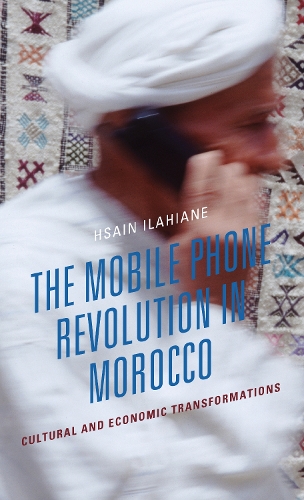
The Mobile Phone Revolution in Morocco: Cultural and Economic Transformations
(Hardback)
Publishing Details
The Mobile Phone Revolution in Morocco: Cultural and Economic Transformations
By (Author) Hsain Ilahiane
Bloomsbury Publishing PLC
Lexington Books
14th February 2022
United States
Classifications
Professional and Scholarly
Non Fiction
Economics
Gender studies, gender groups
Impact of science and technology on society
303.48330964
Physical Properties
Hardback
122
Width 160mm, Height 239mm, Spine 15mm
372g
Description
In The Mobile Phone Revolution in Morocco, Hsain Ilahiane examines how Moroccans use the mobile phone to redefine core notions of gender and space, honor and shame, placemaking, and surveillance and control. Drawing on ethnographic fieldwork with urban street vendors, urban micro-entrepreneurs, urban female domestic workers, and smallholder farmers in urban and rural Morocco, Ilahiane illustrates how the mobile phone has the endowed capacity to inform, rearrange, and transform almost every aspect of Moroccan society.
Reviews
Hsain Ilahiane's book is an ethnographic tour de force. Not only does he show us how a complex multitude of forces and activities all converge upon the cell phones Moroccan people hold in their hands, but also how the phones themselves, as 'total social artifacts, ' are subjects in their own right. Henceforth, anyone writing about the role of cell phones in social and cultural life will have to take this fascinating, and well-argued, book into account.
--Mark P. Whitaker, University of KentuckyIlahiane brings together a multitude of brilliant observations about the impact of the mobile phone within a text that can be read profitably by grads and undergrads in the social sciences as well as by anyone interested in the impact of modern technology in the Islamic world. The Mobile Phone Revolution in Morocco is as original and insightful as it is concise and will astonish and delight the reader. The light but deft theoretical touches will help readers understand the ways in which the examples may be generalized to other areas of the world.
--Thomas K. Park, University of ArizonaThis brief, amusing book depicts the simple mobile phone as magic, a total social artifact endowed with baraka, or blessedness, in the words of one Moroccan domestic worker. The same woman claimed that al-portable, as the mobile phone is called in Moroccan Arabic (borrowed from the French le portable), is a miracle worker deserving shrines dedicated to the worship of its inventors. Through his participant observation, Ilahiane has gathered many insights into the uses of this simple device from street vendors, micro-entrepreneurs in construction industries, farmers, and domestic workers. Recommended. General readers through faculty; professionals.
-- "Choice Reviews"This vivid and engaging ethnography shows how the mobile phone has profoundly affected almost every aspect of life and work in the urban shantytowns and rural hamlets of Morocco. Playfully written and theoretically inspired, The Mobile Phone Revolution is a pathbreaking contribution to modern Middle East studies, as well as a must-read for those interested in economy, labor, and gender relations in a technological era.
--Marcia C. Inhorn, Yale UniversityAuthor Bio
Hsain Ilahiane is professor of anthropology and head of the Department of Anthropology and Middle Eastern Cultures at Mississippi State University.
